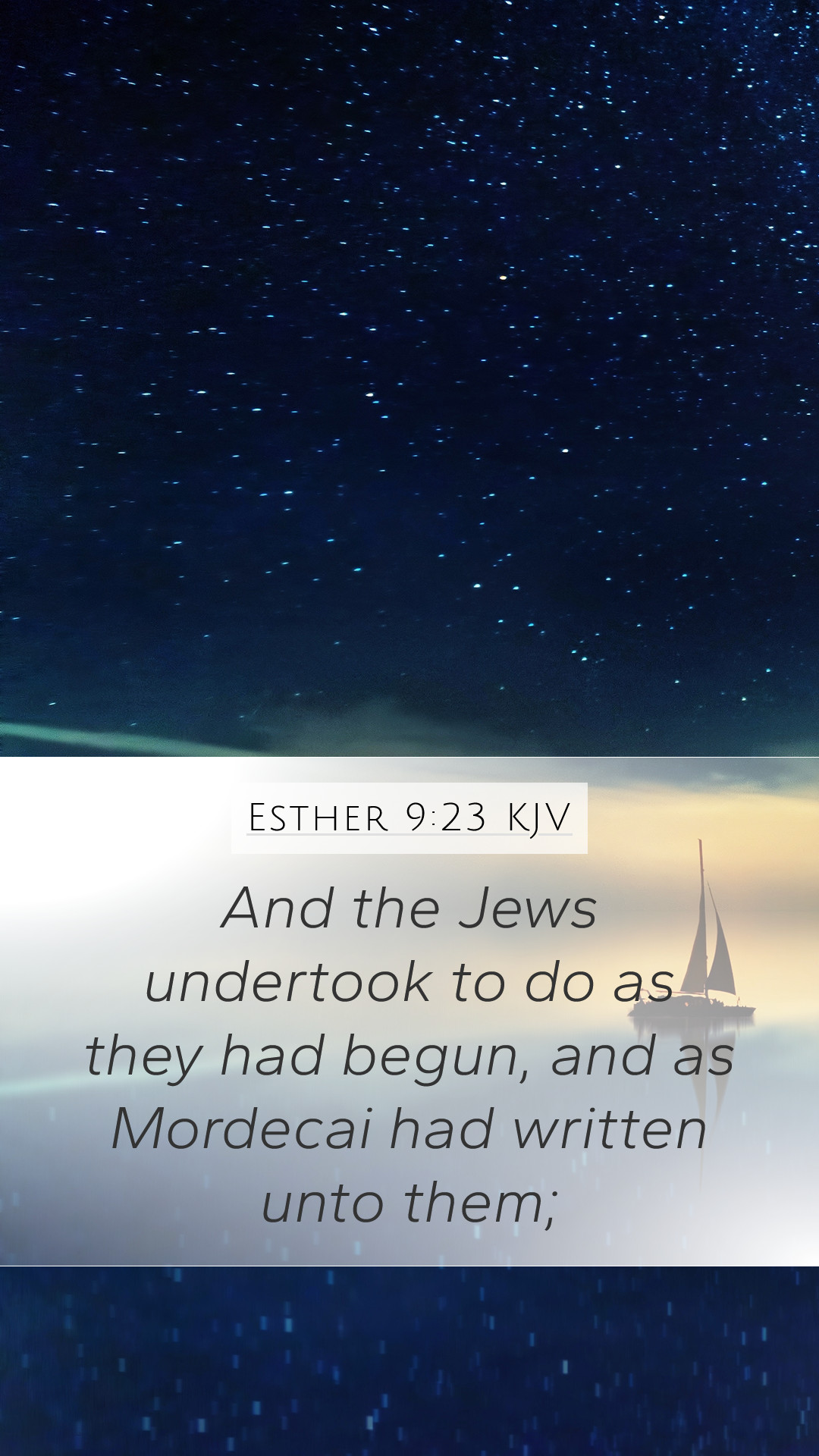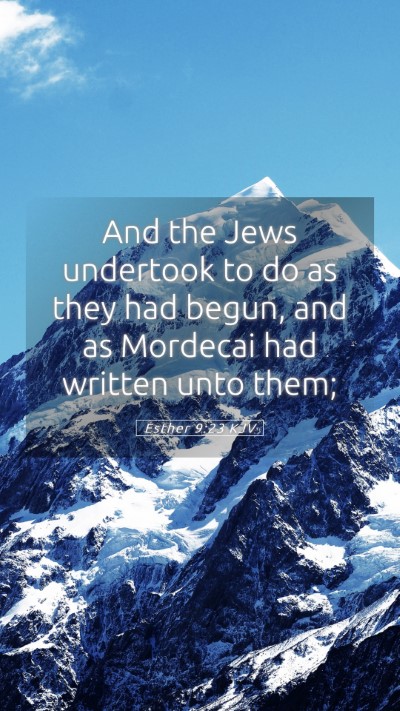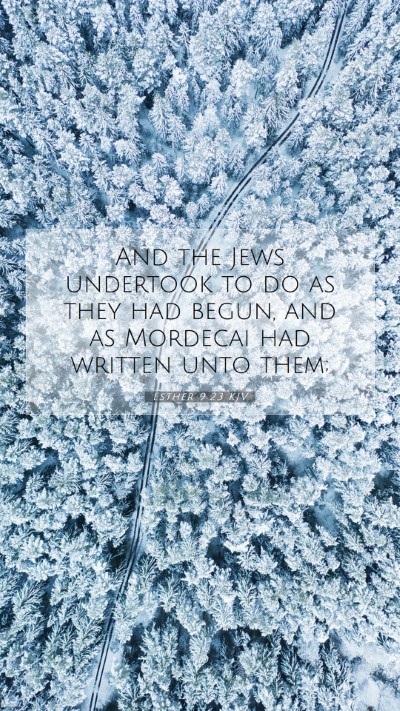Bible Verse Meaning and Commentary: Esther 9:23
Esther 9:23 states, "So the Jews agreed to continue the celebration they had begun, doing what Mordecai had written to them." This verse encapsulates the unity and commitment of the Jewish people to remember and celebrate their deliverance from impending destruction. This account showcases the historical significance of the events surrounding Purim and reflects the themes of survival, joy, and remembrance.
Summary of Insights from Public Domain Commentaries
Albert Barnes' Notes on the Bible
Barnes elaborates on the response of the Jews following their victory over Haman's decree. The agreement to observe the feast of Purim indicates a collective acknowledgment of divine intervention in their plight. This celebration served not only as a remembrance of their deliverance but also as an affirmation of their identity as a people chosen by God.
Matthew Henry Commentary
Henry emphasizes the significance of the feast as a time when the Jewish people transformed their sorrow into joy. The verse reflects a monumental shift in their circumstances and the importance of communal observance—the act of coming together to celebrate God's faithfulness. Henry notes that this unity in celebration fosters a shared identity rooted in the recognition of God's providence.
Adam Clarke's Commentary
Clarke provides a historical context, highlighting the implications of the events leading up to the establishment of Purim. He notes that the celebration represents more than merely a day of feasting; it symbolizes their resilience as a people amid adversity. Clarke points to how this celebration, rooted in remembrance, serves as a teaching moment for future generations about faith, perseverance, and devotion.
Thematic Analysis
The themes optimized in Esther 9:23 resonate across various aspects of life and faith, including:
- Unity: The collective agreement highlights the importance of community and shared beliefs in celebrating God’s actions.
- Remembrance: The act of continuing the celebration is rooted in a deep-seated tradition of acknowledging divine intervention in their history.
- Deliverance and Salvation: The context of the verse reflects broader concepts of salvation and victory over trials, which can be a source of hope and inspiration.
In-Depth Bible Verse Analysis
The historical backdrop of Esther reveals the tension and fears faced by the Jewish community under Persian rule. Their deliverance marked a turning point, leading them to establish a festival that would ensure their story would be told and celebrated for generations. As noted by Matthew Henry, such remembrance not only serves as a historical observation but also as a spiritual anchor for the community. This act of self-identity fosters resilience against future adversities.
Application of Esther 9:23 to Daily Life
Understanding the meaning of Esther 9:23 encourages believers to reflect on their own instances of deliverance and joy amid trials. It reinforces the need for:
- Regularly observing and celebrating milestones of faith in personal journeys.
- Recognizing the communal aspects of faith where collective support and celebration strengthen relationships within the community.
- Acknowledging God’s role in personal and communal deliverance, encouraging a culture of gratitude and acknowledgment of His hand at work.
Related Biblical Cross References
- Exodus 12 - The establishment of Passover, a celebration of deliverance.
- Psalms 30:11-12 - The transformation of mourning into joy.
- Isaiah 61:3 - A provision of comfort and gladness to those who mourn.
Conclusion
Esther 9:23 is a powerful reminder of the importance of remembrance, community, and celebration as integral components of faith. As believers delve into the meaning of Bible verses like this, understanding Scripture becomes a source of strength and enrichment in their spiritual journey. The historical and communal contexts embedded within this narrative offer profound lessons applicable to modern life, promoting resilience, unity, and a continuous remembrance of God's faithfulness in our lives.


